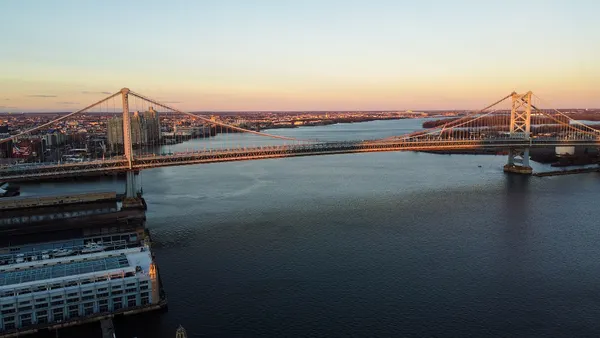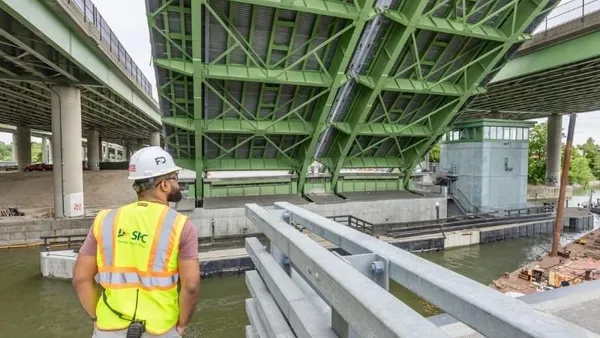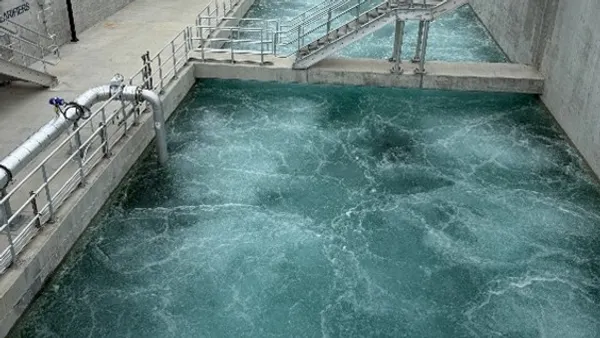UPDATE: August 31, 2018: The Federal Energy Regulatory Commission on Wednesday said construction could resume on the Mountain Valley Pipeline, with the exception of two spans crossing federal land for which permits have not yet been obtained. The agency is considering alternatives that would more closely follow existing rights of way.
FERC said allowing construction and the accompanying restoration work to continue as soon as possible would be the best-case scenario to "protect the environment" along the pipeline.
UPDATE: Aug. 14, 2018: For the second time in as many weeks, the Federal Energy Regulatory Commission has stopped construction on a multi-billion-dollar pipeline in the Mid-Atlantic region of the U.S.
In an Aug. 10 letter to Dominion Energy, Terry Turpin, director of FERC's office of energy projects, ordered the company to stop work on all portions of the $6 billion Atlantic Coast Pipeline and supply header project, which is a 37.5-mile run along existing rights of way, and changes to existing compression facilities in West Virginia and Pennsylvania. That pipeline will enable the transport of natural gas from those states to various pipelines, including Dominion's Atlantic Coast Pipeline. The commission granted an exception for work necessary to stabilize rights of way and work areas, a scope of work for which Dominion must submit a plan to FERC within five days from the date of the letter.
The commission has taken this action because, similar to its Aug. 3 stop-work order for the $3.5 billion Mountain Valley Pipeline, the United States Court of Appeals for the Fourth Circuit's decision to vacate the necessary permits leaves Dominion without construction authorization. In his letter, Turpin expressed confidence that Dominion would be able to meet the court's permit requirements but could not predict when; therefore, the agency could not let work proceed.
Dive Brief:
- A three-judge panel of the United States Court of Appeals for the Fourth Circuit on Monday vacated two critical Atlantic Coast Pipeline permits, one from the U.S. Fish and Wildlife Service and the other from the National Park Service.
- As part of the Fish and Wildlife Service permitting process, the agency authorized harm to a limited number of endangered or threatened species as a result of the natural gas pipeline project. The court, agreeing with plaintiffs Defenders of Wildlife, the Sierra Club and the Virginia Wilderness Committee, called this move "arbitrary and capricious" for failing to provide specific and enforceable limits on the project's impact to five species. In its order pulling the National Park Service's right-of-way permit, the court decided that allowing pipeline crews to drill under the Blue Ridge Parkway would negatively affect the parkway's scenic overlooks because of the deforestation that would be required. The court agreed with plaintiffs the Sierra Club and the Virginia Wilderness Committee that the Park Service's issuance of the permit was not consistent with the service's conservation mission.
- The 600-mile Atlantic Coast Pipeline is valued at $6 billion, with the construction portion of the project expected to reach almost $3 billion, according to an April 2018 project fact sheet. The pipeline, a partnership between Dominion Energy, Duke Energy, Piedmont Natural Gas and Southern Company Gas, will run from Robeson, North Carolina, to just north of Lewis, West Virginia, creating an estimated 17,000 construction jobs. An attorney for the plaintiffs said the appeals court decision would force the pipeline back to square one of the planning stage, but Dominion Energy said the project should only experience delays while pipeline officials send permits back to their respective agencies for additional review, according to the Associated Press.
Dive Insight:
The same court on July 27 also dealt a blow to the more than 300-mile, $3.5 billion Mountain Valley Pipeline project, which will run natural gas from northwest West Virginia to southern Virginia. The Fourth Circuit court found that the U.S. Forest Service (USFS) and the Bureau of Land Management's (BLM) decisions to issue right-of-way permits for the pipeline did not comply with the National Environmental Policy Act, the Mineral Leasing Act and the National Forest Management Act. As a result, the Federal Energy Regulatory Commission issued a stop-work order to Mountain Valley since the commission's work authorization was predicated on right of way.
In response to FERC's decision, Mountain Valley issued a statement that said the stop-work order pertains to about 1% of the pipeline's route and that it shares the Fourth Circuit's opinion that the USFS and BLM will be able to meet court requirements and issue new right-of-way grants.
The reasons environmental groups and other activists try to stop natural gas pipeline construction range from the effect they could have on regional wildlife to the possibility of leaks. According to Inside Energy, natural gas leaks during drilling, storage and transport could very well offset the benefits of what is considered a cleaner fuel alternative.













